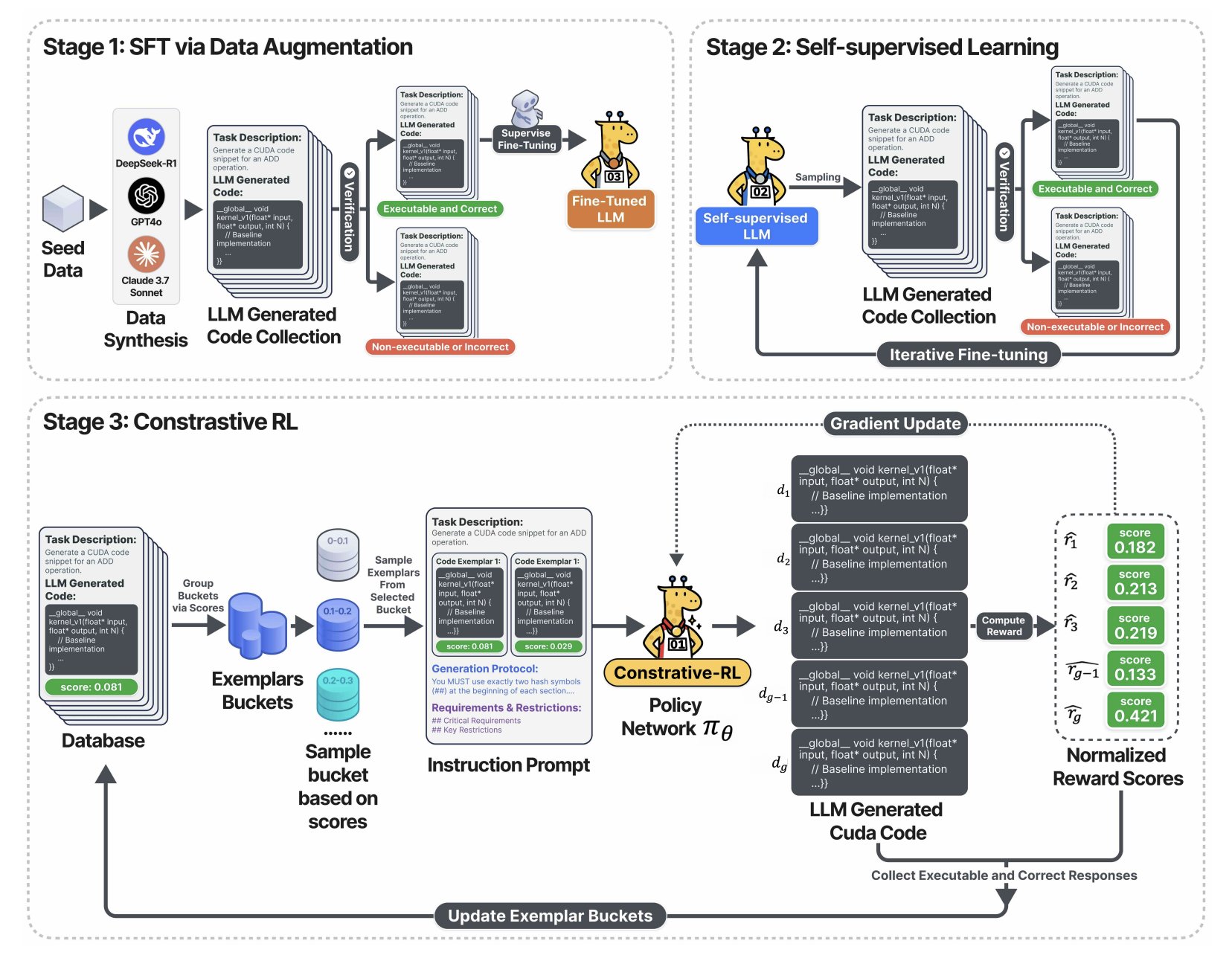
DeepReinforce Launches CUDA-L1: A Game-Changer in GPU Optimization
In a groundbreaking development in artificial intelligence, the DeepReinforce Team has unveiled CUDA-L1, an automated reinforcement learning framework that significantly enhances GPU optimization. This innovative framework achieves an average speedup of 3.12 times and boasts peak acceleration of up to 120 times across 250 real-world GPU tasks. Remarkably, these results can be reproduced using open-source code on commonly utilized NVIDIA hardware.
The Breakthrough: Contrastive Reinforcement Learning
At the core of CUDA-L1 lies a novel approach known as Contrastive Reinforcement Learning (Contrastive-RL). This method diverges from traditional reinforcement learning by incorporating feedback from performance scores and prior code variants into subsequent optimization cycles. Instead of merely generating solutions and receiving numerical rewards, the AI is tasked with creating a natural language “Performance Analysis.” This analysis evaluates the efficiency of various code iterations, providing insights into why certain versions performed better.
Performance Metrics
The performance of CUDA-L1 has been rigorously tested, with results indicating not just theoretical improvements but tangible outcomes that can be leveraged in practical applications. The implementation of this framework has the potential to revolutionize how developers and organizations utilize GPU resources, leading to enhanced productivity and efficiency.
Business Impact
The implications of CUDA-L1 extend beyond academic circles into real-world business applications. By optimizing GPU tasks automatically, organizations can save significant time and resources, enabling them to focus on innovation rather than manual optimization processes. This advancement is expected to be particularly beneficial for sectors heavily reliant on computational power, such as data science, machine learning, and high-performance computing.
Conclusion
As AI continues to evolve, frameworks like CUDA-L1 demonstrate the potential for machines to optimize their own performance without human intervention. This marks a significant step forward in the field of artificial intelligence, positioning AI as an essential tool for optimization in various industries.
Rocket Commentary
The unveiling of CUDA-L1 by the DeepReinforce Team represents a significant leap in GPU optimization through Contrastive Reinforcement Learning, offering an impressive average speedup of 3.12 times. This development is promising, particularly given its open-source accessibility, which democratizes advanced technology for broader use. However, the industry must remain vigilant about ensuring that such enhancements are ethically deployed and do not exacerbate existing disparities in access to AI tools. As businesses look to harness this technology for transformative impacts, the focus should be on fostering an ecosystem that prioritizes equitable access and responsible innovation. The potential for accelerated AI applications is vast, but it should not come at the cost of ethical considerations and inclusivity.
Read the Original Article
This summary was created from the original article. Click below to read the full story from the source.
Read Original Article